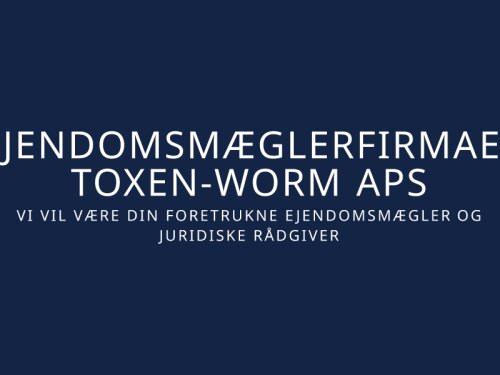Best Collaborative Law Lawyers in Ringe
Share your needs with us, get contacted by law firms.
Free. Takes 2 min.
Free Guide to Hiring a Family Lawyer
List of the best lawyers in Ringe, Denmark
About Collaborative Law in Ringe, Denmark
Collaborative law is a voluntary process in which the parties and their specially trained lawyers work together to reach a negotiated settlement outside of court. In Ringe, as elsewhere in Denmark, collaborative law is an option for people facing family law matters and other disputes who prefer a cooperative, problem-solving approach rather than adversarial litigation. The process is based on open communication, full financial and factual disclosure, and a written participation agreement that sets out rules for meetings, confidentiality and the commitment that the collaborative lawyers will withdraw if the case proceeds to court.
Why You May Need a Lawyer
Collaborative law is lawyer-led, so you will typically need a lawyer in several common situations:
- Divorce or legal separation where the parties want to negotiate division of assets, housing arrangements and any spousal maintenance without going to court.
- Child-related matters such as parental responsibility, residence and contact arrangements where parents prefer a cooperative plan focused on the childs best interests.
- Property division and financial settlements for married couples, registered partners or cohabitants who want certainty about how pensions, real estate and bank accounts will be handled.
- Prenuptial or postnuptial agreements and discussions about how assets should be treated in case of future separation.
- Inheritance and estate issues between heirs or family members seeking a negotiated solution.
- Complex financial disputes where the parties want to appoint financial neutrals or experts to help value businesses, pensions or real estate without costly court litigation.
Even though collaborative law aims to avoid court, you need lawyers to ensure your rights are protected, documents are legally sound and any agreement is drafted so it can be enforced if required.
Local Laws Overview
Several Danish legal rules are especially relevant when using collaborative law in Ringe:
- Marital property regimes - Danish law recognises different property regimes, including fælleseje (shared property) and særeje (separate property). Couples can establish an ægtepagt - a marriage contract - to set separate property rules. Such contracts are registered through public registration procedures.
- Division of assets - On divorce the property regime, any marriage contract and the parties financial disclosures determine how assets, debts and pensions are divided. Pensions are often significant and handled according to pension rules and valuation practices.
- Child law - Matters concerning children are governed by the principle of the childs best interests. Parental responsibility, residence and visitation are handled with strong emphasis on stability and the childs welfare. In many cases authorities such as Familieretshuset are involved in assessments and registrations.
- Maintenance and support - Claims for child support and spousal maintenance are subject to Danish rules. Municipal authorities and national family law bodies may play a role in assessing child support, while spousal maintenance depends on the facts of each case.
- Formal agreements and registration - Agreements reached through collaborative processes should be correctly documented. Certain agreements - for example changes to registered marital property arrangements or land-related transactions - may require formal registration or notarisation to be fully effective.
- Confidentiality and the participation agreement - A central feature of collaborative law is the participation agreement. This sets out confidentiality, the commitment of the collaborative lawyers to withdraw if the process ends in court and the roles of any experts or neutrals. That agreement shapes the process and its limits.
- Courts and jurisdiction - If a collaborative process fails and the case is brought to court, the matter will be decided under Danish substantive and procedural law. The district court that typically covers Funen, including Ringe, is the Odense district court - though parties should verify the local court responsible for their case.
Frequently Asked Questions
What exactly is collaborative law?
Collaborative law is a voluntary dispute-resolution process where each party is represented by a lawyer trained in collaborative practice. The parties and lawyers commit to negotiate openly and to reach a settlement without going to court. If negotiations fail and court proceedings start, the collaborative lawyers withdraw and the parties must hire new litigators.
How is collaborative law different from mediation?
In mediation a neutral mediator assists the parties directly and the mediator does not represent either party. In collaborative law each party has their own lawyer who advocates for the clients interests within a cooperative framework. Collaborative teams may also include financial neutrals or child specialists to provide professional input.
Is a collaborative agreement legally binding?
An agreement reached in a collaborative process becomes legally binding when the parties sign it in the proper form. Some types of arrangements may need further steps such as registration or notarisation to be fully effective under Danish law. Your lawyer will advise on the formalities required for your specific agreement.
Will discussions in a collaborative process be confidential?
Yes - confidentiality is a key part of the participation agreement. Parties usually agree that statements made during collaborative negotiations are confidential and cannot be used in court. There are limits - for example information that must be disclosed by law or matters affecting a childs safety are not protected by confidentiality in the same way.
What happens if the other party refuses to participate?
Collaborative law requires voluntary participation. If the other party refuses, options include mediation, traditional negotiation through lawyers, or starting court proceedings. It may be useful to explain the collaborative approach and the potential benefits, and to seek advice on alternative dispute resolution options available in your situation.
Do I need a specialist collaborative lawyer in Ringe?
It is strongly recommended to work with a lawyer who has training and experience in collaborative practice. Such lawyers understand the collaborative participation agreement, multi-disciplinary teamwork and how to structure negotiations that address legal, financial and child-related issues. If you cannot find a trained collaborative lawyer locally, consider a family lawyer experienced in negotiation who can advise on collaborative options.
How much does collaborative law cost?
Costs vary depending on the complexity of the case, the number of meetings, and whether specialists are engaged. Collaborative law can be less costly than court litigation because it aims to reduce time and procedural expenses, but it is not guaranteed to be cheaper. Always ask lawyers for an estimated fee structure and for alternatives such as free initial consultations or legal aid eligibility.
Can we include child custody and visitation in a collaborative agreement?
Yes - child custody, residence and visitation arrangements can be negotiated in collaborative law. The agreement should prioritise the childs best interests and may require review or input from Familieretshuset or local authorities, depending on the circumstances and whether formal registration is necessary.
What happens if negotiations break down?
If negotiations fail the participation agreement usually requires the collaborative lawyers to withdraw from representing the parties in any subsequent court proceedings. The parties can then instruct new lawyers and may proceed to court or try another form of dispute resolution. The need to find new counsel is intended to encourage good faith settlement efforts.
Can I get financial help to pay for a collaborative lawyer?
Possibly. In Denmark there is a system called fri proces - legal aid - which may be available if you meet income and merit criteria. You should discuss eligibility with a lawyer or the public legal aid authorities. Municipal social services may also provide guidance on child-related matters and financial assistance in some circumstances.
Additional Resources
Below are resources and bodies that can help someone in Ringe seeking collaborative law assistance:
- Familieretshuset - the national family law authority that handles parental responsibility, maintenance and related family law registrations and guidance.
- Advokatsamfundet - the Danish Bar and Law Society, which provides information about choosing a lawyer and maintains professional standards.
- Fri proces - the legal aid system in Denmark that assesses eligibility for free legal assistance in civil matters.
- Faaborg-Midtfyn Kommune - local municipal services for family support, counselling and social services relevant to family disputes in Ringe.
- Odense district court - the district court that commonly covers Funen and the Ringe area for court proceedings if litigation becomes necessary.
- Local family law offices and collaborative practitioners - seek lawyers who advertise collaborative practice or who are experienced in family law negotiations. Ask about collaborative training and experience during an initial consultation.
- Borger information services - municipal and national citizen information portals that explain practical steps in a family law case and required documents.
Next Steps
If you are considering collaborative law in Ringe, use the following practical steps as a guide:
- Clarify your goals - identify what outcomes you want for finances, housing and children. Prioritise the childs best interests where relevant.
- Gather documents - bring identification, marriage or partnership certificates, financial statements, bank and pension information, property deeds and any existing agreements such as an ægtepagt.
- Consult a lawyer - book an initial meeting with a collaborative-trained lawyer or an experienced family law lawyer. Ask about their collaborative training, fees, how they structure the participation agreement and whether they work with neutrals such as financial experts or child specialists.
- Discuss costs and legal aid - get a clear fee estimate and ask if you may qualify for fri proces or other support.
- Consider the participation agreement - before starting you will sign a participation agreement that sets confidentiality rules, the role of lawyers and what happens if negotiations fail. Make sure you understand it fully.
- Prepare for meetings - be ready to disclose financial information and to negotiate in good faith. If you have children, focus on plans that support their stability and welfare.
- If necessary, explore alternatives - if collaborative law is not possible, consider mediation, arbitration or court litigation. Your lawyer can advise which path best fits your objectives and circumstances.
Please remember that this guide provides general information and does not replace tailored legal advice. For case-specific advice, consult a qualified lawyer who can assess the facts and applicable Danish law in your situation.
Lawzana helps you find the best lawyers and law firms in Ringe through a curated and pre-screened list of qualified legal professionals. Our platform offers rankings and detailed profiles of attorneys and law firms, allowing you to compare based on practice areas, including Collaborative Law, experience, and client feedback.
Each profile includes a description of the firm's areas of practice, client reviews, team members and partners, year of establishment, spoken languages, office locations, contact information, social media presence, and any published articles or resources. Most firms on our platform speak English and are experienced in both local and international legal matters.
Get a quote from top-rated law firms in Ringe, Denmark — quickly, securely, and without unnecessary hassle.
Disclaimer:
The information provided on this page is for general informational purposes only and does not constitute legal advice. While we strive to ensure the accuracy and relevance of the content, legal information may change over time, and interpretations of the law can vary. You should always consult with a qualified legal professional for advice specific to your situation.
We disclaim all liability for actions taken or not taken based on the content of this page. If you believe any information is incorrect or outdated, please contact us, and we will review and update it where appropriate.









